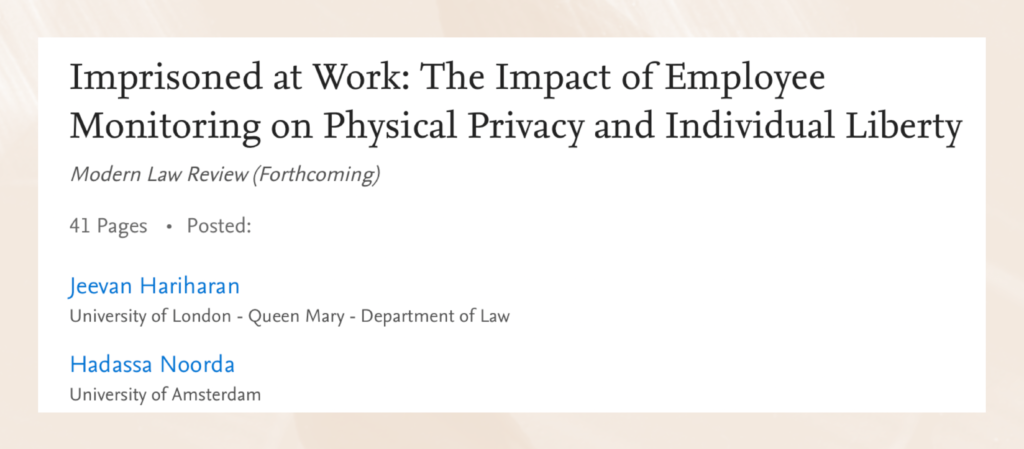Redefining Workplace Surveillance: A New Paper by Hadassa Noorda and Jeevan Hariharan on Privacy and Individual Liberty
Hadassa Noorda, Assistant Professor of Criminal Law at the University of Amsterdam and a member of the Digital Legal Lab, has a research focus on the philosophy of criminal law. She has previously held postdoctoral positions at renowned institutions, including NYU’s Center for Law and Philosophy, Columbia Law School, and the Rutgers Institute for Law and Philosophy.
Professor Noorda has co-authored a forthcoming article with Jeevan Hariharan titled “Imprisoned at Work: The Impact of Employee Monitoring on Physical Privacy and Individual Liberty”, which will be published in the Modern Law Review. This paper explores the intricate legal and philosophical implications of contemporary employee monitoring practices.
The study addresses the increasingly pervasive tools used to monitor employees, such as keystroke logging, geolocational tracking, and video surveillance. While traditional legal analyses often focus on the impact of these tools on an employee’s informational privacy, Noorda and Hariharan argue that the issue is far more complex. Their article presents two major concerns that extend beyond the realm of informational privacy.
First, they contend that monitoring also intrudes upon the physical and spatial aspects of privacy. Second, in extreme cases, the severity of monitoring can lead to a significant curtailment of individual liberty, potentially amounting to a form of imprisonment. The article discusses the significant legal ramifications of these arguments and addresses counterpoints, particularly concerning employee consent and the historical constraints of workplace freedom.
The full paper is available for reading on SSRN here.

